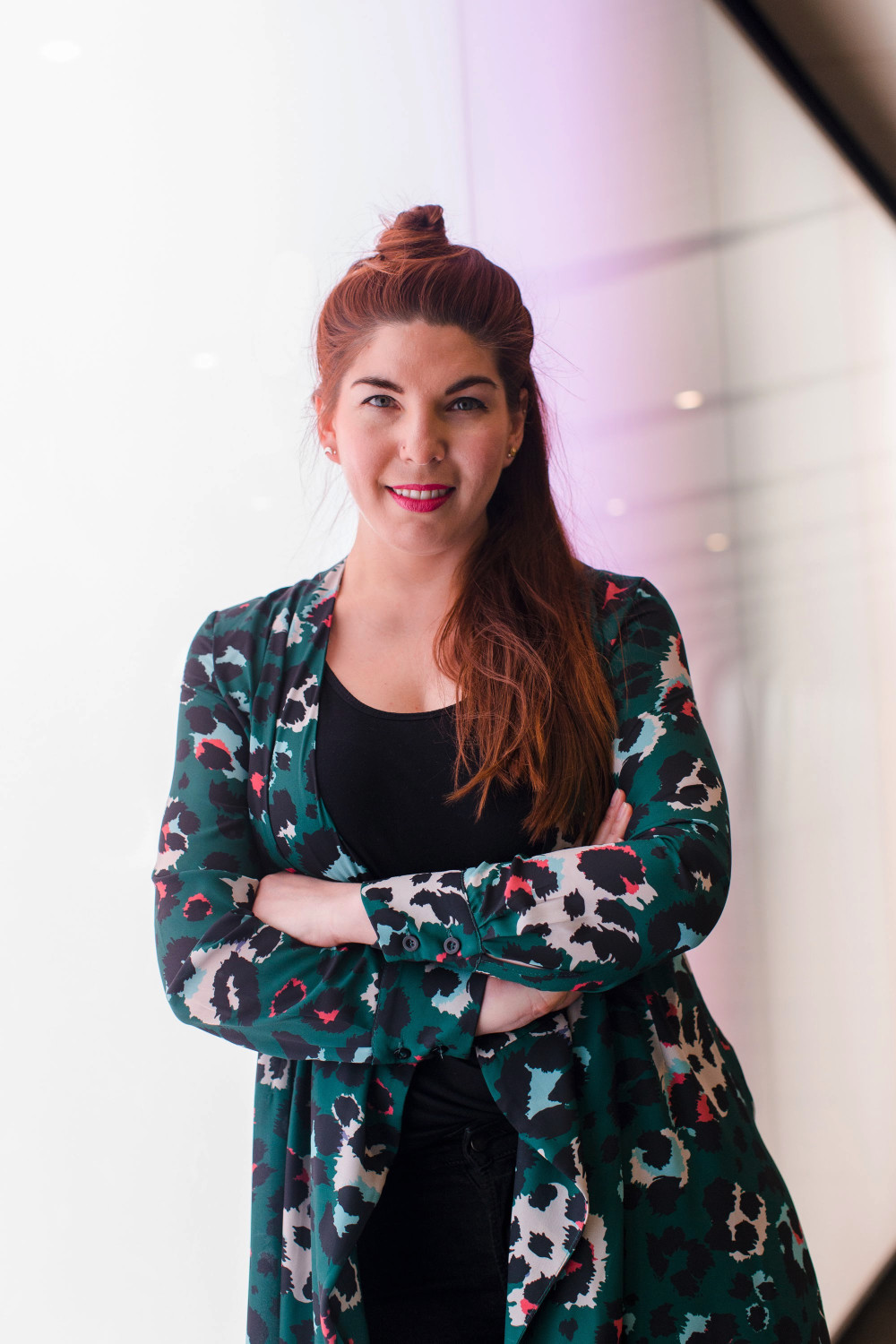How to deal with jealousy and envy at work (and, yes, it's still happening WFH)
This is an oddly taboo subject, says Cate Sevilla, who's survived plenty of toxic workplaces. Now Sevilla's sharing the expert strategies she's learnt while researching her latest book, How To Work Without Losing Your Mind


This is an oddly taboo subject, says Cate Sevilla, who's survived plenty of toxic workplaces. Now Sevilla's sharing the expert strategies she's learnt while researching her latest book, How To Work Without Losing Your Mind
‘She’s just jealous of you!’ If you identify as being a woman, chances are that it would be literally impossible to count exactly how many times someone’s told you this is the reason why you’re having trouble with another woman in your life. Whether it’s at school, at work, or even in your extended family - how to deal with jealousy crops up a lot. It's even more complicated when you're the one hiding the jealousy deep within you.
She’s just jealous. Sure, sometimes this is true, but most of the time this phrase is greatly oversimplifying the nuances and complexities of female friendship, and more specifically, the relational issues that creep up between women at work. (Plus, envy and jealousy are two different things!) Envy, comparison and competition between women can run rife, especially if you work in a woman-dominant industry or (currently remote) office.
Why are jealousy and envy still taboo?
This is difficult, complicated and can be really stressful to deal with. And what makes it even harder, is that we never really talk about it. It’s oddly taboo, no doubt because relational issues between women is often deemed as petty, bitchy, or ‘a catfight’. Women have never really been granted the space to speak plainly about our issues with each other, or how to compete naturally with one another without it being shameful, stigmatised or even fetishised.
We’re not taught that it’s OK to compete with one another, or that competition between women and young girls is normal. Why must we be docile and sisterly all the time? Fight over a man, sure, but fight for a promotion or accolade? Or even disagree with each other? Gasp! Not so much.
We need to talk about the sisterhood
We’re sold an idea of an extreme, one-dimensional sisterhood and warned there’s a special place in hell for women that don’t help other women. And then, at the same time, we’re fed spoonfuls of internalized misogyny, constantly pitted against each other (‘who wore it best?’) Instead of being given the tools to process and appreciate competitive feelings or even find the fun and benefits in having a professional rival – we must demonise and teardown the other woman. And make ourselves feel bad or even ‘crazy’ in the process. How can someone be our sister and our competition? How to deal with jealousy and envy? How can we tolerate feelings of competitiveness while also respecting the other woman? How can we do and be both?
How to deal with jealousy and envy - when it's your problem
It is possible. And a good place to start is accepting that if you are experiencing feelings of envy, comparison or competition with your women colleagues at work – all of these feelings are totally and completely natural. Remember you're:
Celebrity news, beauty, fashion advice, and fascinating features, delivered straight to your inbox!
1) You’re not a bad feminist, person, or ‘complete bitch’ for feeling that way
2) The guilt and shame we’ve been trained to experience when we do feel competitive or envious with another woman are completely unnecessary.
3) A person’s gender shouldn’t have anything to do with whether or not we can compete in a fair and healthy fashion with them.

Envy: your key coping strategies
When it comes to envy, understand that feelings of envy very rarely have anything do with the other person, and are almost always ourselves.
Examine your feelings If, for instance, if you find yourself feeling really envious of your colleague’s recent promotion or the way they depict their career successes on Instagram - what is it exactly that bothers you? Never mind that Instagram isn’t ‘real life’, what feelings are her posts bringing up for you? What story are you telling herself about her life and her career that you feel, in comparison, you don’t have - or should have?
Realise your hidden desires Really explore why someone is bringing up feelings of envy – it will always reveal hidden desires and wants that we sometimes didn’t realise we wanted for ourselves. And once those wants are made clear to you - what will you do with that information? What action can you now take?
Stop the comparison stress spiral Equally, comparing your performance at work to someone else's, whether on Instagram or even via Slack or Zoom, is largely counterproductive and can lead to unnecessary stress and anxiety spirals. We never know the full, complete story of someone’s life or career achievements. That feeling of ‘why not me?’ is painful, but the real question to ask ourselves (or our manager) should be, ‘What do I need to do or work on to get to the next level of my career?’ not ‘Why did Jessica get made Senior Analyst and I didn’t?’ ...particularly if you didn’t put yourself forward for a promotion to begin with.
Recognise the triggers Understanding and accepting that feelings of envy are about ourselves, and that it’s OK to feel competitive with another woman are the first steps to alleviating the tension and drama that can unfold at work. Being able to feel empathy for our colleagues, and being more honest about what our feelings are towards our fellow women at work will help us all.
We don’t have to like each other and it’s OK to disagree with one another, truly. But being aware of why we’re feeling triggered or upset by another woman at work is vital to having a healthier working relationship with your colleagues, and ultimately, a healthier relationship with our career.
* Cate Sevilla's book How To Work Without Losing Your Mind (Penguin Business) and is out now. Sevilla has led and managed editorial teams for some of the world's largest media and tech companies (Google, BuzzFeed and Microsoft). She was a founding member of BuzzFeed UK and later became editor-in-chief at The Pool. Her podcast The Heart Of It was launched to accompany the book. Born in California, she moved to London, age 20, to marry a British man she met on MySpace - 14 years later, they're about to become parents.
Maria Coole is a contributing editor on Marie Claire.
Hello Marie Claire readers – you have reached your daily destination. I really hope you’re enjoying our reads and I'm very interested to know what you shared, liked and didn’t like (gah, it happens) by emailing me at: maria.coole@freelance.ti-media.com
But if you fancy finding out who you’re venting to then let me tell you I’m the one on the team that remembers the Spice Girls the first time round. I confidently predicted they’d be a one-hit wonder in the pages of Bliss magazine where I was deputy editor through the second half of the 90s. Having soundly killed any career ambitions in music journalism I’ve managed to keep myself in glow-boosting moisturisers and theatre tickets with a centuries-spanning career in journalism.
Yes, predating t’internet, when 'I’ll fax you' was grunted down a phone with a cord attached to it; when Glastonbury was still accessible by casually going under or over a flimsy fence; when gatecrashing a Foo Fighters aftershow party was easy-peasy-lemon-squeezy and tapping Dave Grohl on the shoulder was... oh sorry I like to ramble.
Originally born and bred in that there Welsh seaside town kindly given a new lease of life by Gavin & Stacey, I started out as a junior writer for the Girl Guides and eventually earned enough Brownie points to move on and have a blast as deputy editor of Bliss, New Woman and editor of People newspaper magazine. I was on the launch team of Look in 2007 - where I stuck around as deputy editor and acting editor for almost ten years - shaping a magazine and website at the forefront of body positivity, mental wellbeing and empowering features. More recently, I’ve been Closer executive editor, assistant editor at the Financial Times’s How To Spend It (yes thanks, no probs with that life skill) and now I’m making my inner fangirl’s dream come true by working on this agenda-setting brand, the one that inspired me to become a journalist when Marie Claire launched back in 1988.
I’m a theatre addict, lover of Marvel franchises, most hard cheeses, all types of trees, half-price Itsu, cats, Dr Who, cherry tomatoes, Curly-Wurly, cats, blueberries, cats, boiled eggs, cats, maxi dresses, cats, Adidas shelltops, cats and their kittens. I’ve never knowingly operated any household white goods and once served Ripples as a main course. And finally, always remember what the late great Nora Ephron said, ‘Everything is copy.’
